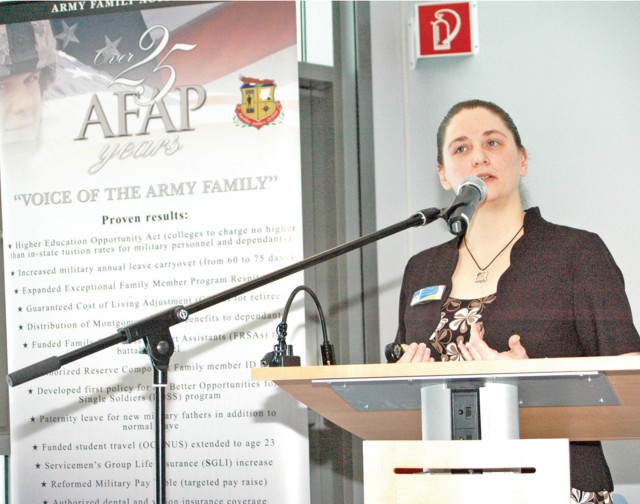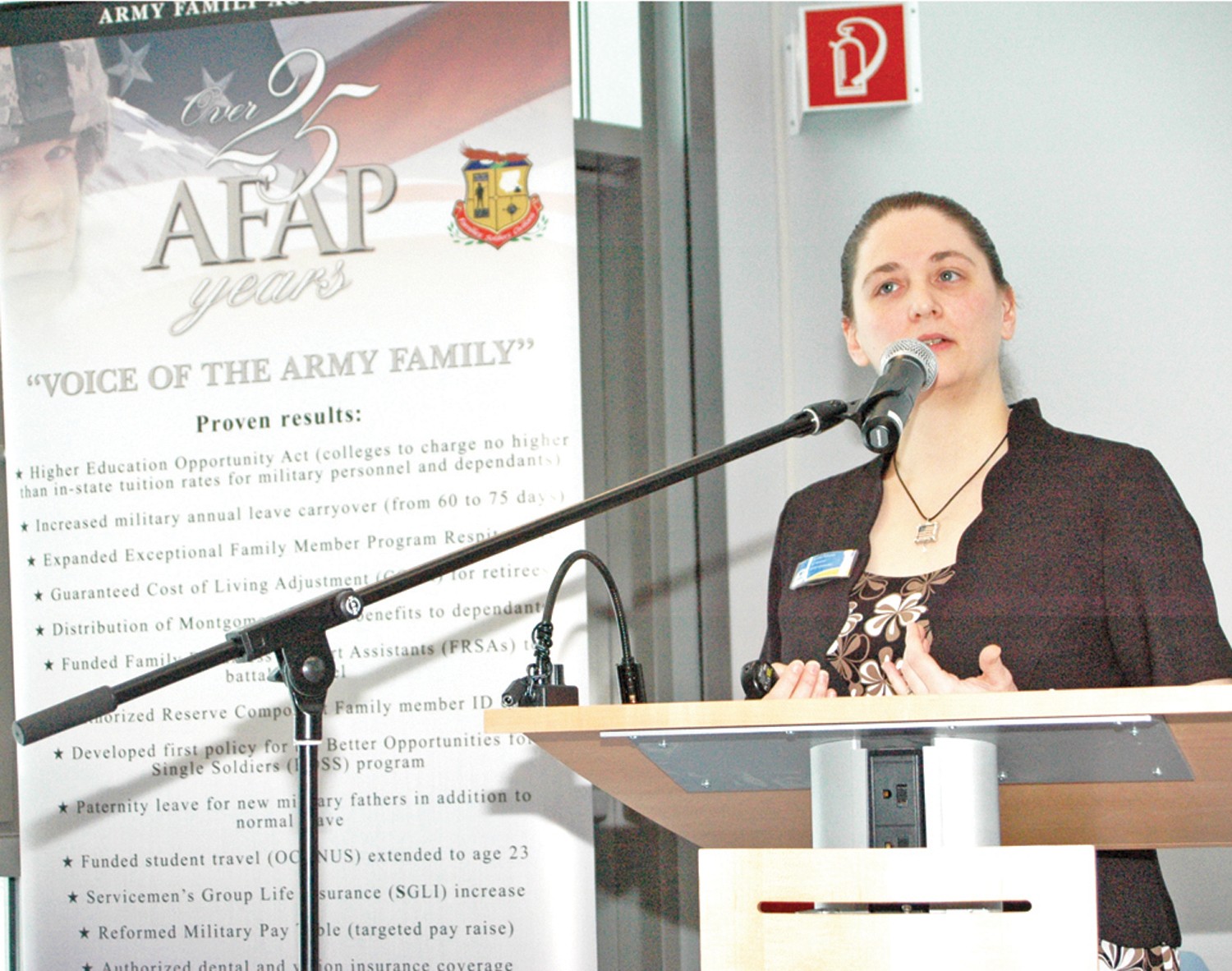WIESBADEN, Germany - U.S. Army Garrison Wiesbaden's collective voice has been heard - from a plea for more high-school-age activities to a request that would allow more single Soldiers to live off post.
Now it's time for action or at least a plan for action.
Issues raised at the 2011 Wiesbaden Army Family Action Plan Conference - held Feb. 24 and 25 - will move on to a regional AFAP conference or be handled at the local level.
"Five or six of these issues that were briefed I've seen in the last 20 months since I've been here," said Col. Jeffrey Dill, USAG Wiesbaden commander. "This (AFAP process) gives me leverage in getting authorization from higher levels (to tackle the issues)."
More than 100 pieces of legislation have been changed, 154 policies revised or established and 173 programs and services improved since AFAP was instituted 28 years ago.
AFAP is an Army-wide grassroots initiative designed to give community members an opportunity to tell Army leadership what is working and what isn't and what might be done in order to fix it.
"We need age-appropriate entertainment for high schoolers," said Wiesbaden teen Marlene Reyes, who gave the out brief for the conference's teen group.
Reyes' brief included a request for more PG-13 movies and perhaps even the creation of a Child, Youth and School Services Edge program exclusively for high-school-age teens. Reyes' group even had a name for such activities - Over the Edge.
More single Soldiers should have the ability to move off post, said Saleisia Lampkin representing the single Soldiers working group. Tackling an Army regulation, Lampkin's group recommended that the Army's off-post living regulation AR 420-1 be changed to reflect the Air Force's regulation 32-6005, section 5.1.3, to allow E-4s and above with at least three years time in service to be authorized to live off post.
The latter issue requires attention at the Department of the Army-level AFAP. But the first, regarding more activities for high school teens, is already being tackled locally, said Annikka Trabucco, Wiesbaden AFAP program manager.
"Some issues can be considered short-term or easily fixed, but others will need more involvement," said Trabucco who called the 2011 AFAP conference extremely successful.
More than 40 delegates representing Soldiers, family members, teens, retirees and civilians spent two days in five working groups tackling issues submitted locally throughout the year for AFAP.
"It's to better the community and to better the quality of life for community members," said Alise Gates, a spouse and first time delegate with Wiesbaden AFAP. Gates admitted she didn't know what to expect from the organized conference, but said she was happy to help.
Master Sgt. James Farina, with 66th Military Intelligence Brigade, has volunteered as an AFAP delegate for three years.
"This is an opportunity to voice (our) opinions, to be part of the decision-making process," said Farina who added that the best issue to come out of an AFAP was allowing family members to be able to use a Soldier's education benefits.
"By far that was the best thing that came out of an AFAP," said Farina.
Past AFAP issues have instituted local changes such as a new teen center for community youth, an event team for planning activities at the Wiesbaden Community Activity Center and the availability of additional newcomers tours through the Army Community Service Relocation Program.
Changes instituted Army-wide because of AFAP issues include the 90-day stabilization upon redeployments, Military Savings Plan authorized and implemented and Family Readiness Groups institutionalized.
Visit www.wiesbaden.army.mil to view all 13 issues submitted from the USAG Wiesbaden AFAP Conference.


Social Sharing